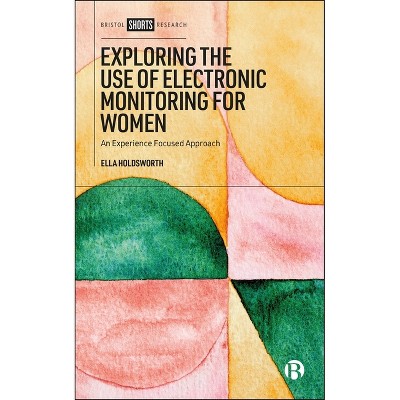Sponsored

Envisioning Abolition - by David Gordon Scott & Emma Bell
In Stock
Sponsored
About this item
Highlights
- Abolitionist thought visualizes a world without prisons - or a radical reduction or transformation of prisons and punishment.
- About the Author: David Gordon Scott works at The Open University and is Co-Founding Editor of the journal Justice, Power and Resistance.
- 360 Pages
- Social Science, Criminology
Description
Book Synopsis
Abolitionist thought visualizes a world without prisons - or a radical reduction or transformation of prisons and punishment. This fascinating book explores the abolitionist ideas of key early socialists and anarchists, writing from the late 18th to the early 20th centuries. It considers how these radical thinkers can provide insights into our present condition, both by highlighting the harms of punishment and by pointing to inspiring alternatives to current policy and practice.
By examining their calls for the ending of legal coercion, domination and repression, the book shows how the ideas of early socialists and anarchists can assist those engaging in emancipatory struggles against penal and social injustice today.
Review Quotes
'At a moment in which the powers of state punishment are expanding through both familiar and newfound techniques, Envisioning Abolition and Abolitionist Voices make timely and thought-provoking interventions.' Radical Philosophy
'This bold, authoritative and engaging collection has rich potential to inform and reanimate current debates on prison abolition. It can serve as an important source of inspiration for contemporary abolitionists.' Andrew M. Jefferson, DIGNITY - Danish Institute Against Torture
'Envisioning Abolition traces a long history of abolitionism in the work of its inspiring advocates. Scott and Bell's collection is a timely reminder of the persistence of abolitionist traditions, their nuance, complexity and pertinence.' Ruth Kinna, Loughborough University
'While more and more people have joined the struggle to abolish cops, courts and cages in recent years, early contributions to penal abolitionist thought and praxis have often been ignored. Envisioning Abolition offers a window into the origins of penal abolitionism that ought to be taken up more readily in contemporary efforts to end imprisonment and punitive injustice.' Justin Piché, University of Ottawa and co-author of How to Abolish Prisons: Lessons from the Movement Against Imprisonment
About the Author
David Gordon Scott works at The Open University and is Co-Founding Editor of the journal Justice, Power and Resistance.
Emma Bell is Professor of Professor of Contemporary British Politics at the University of Savoie Mont Blanc and is Co-Founding Editor of the journal Justice, Power and Resistance.
Shipping details
Return details
Trending Non-Fiction
















